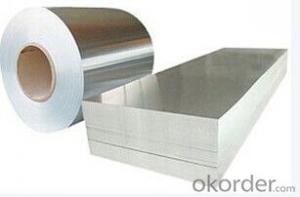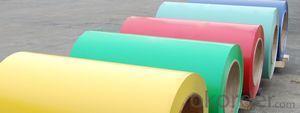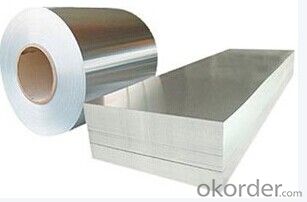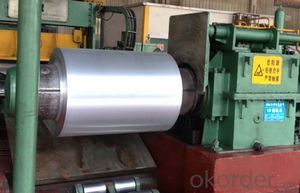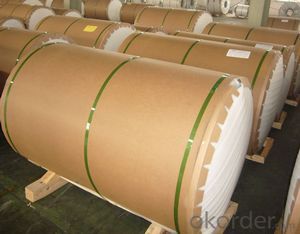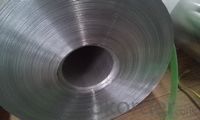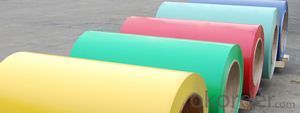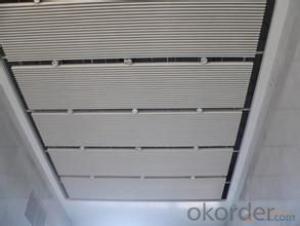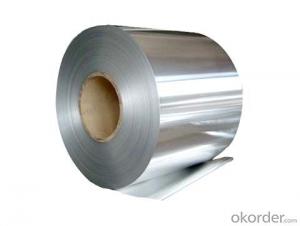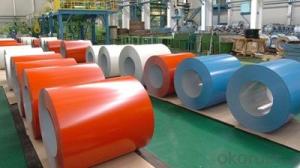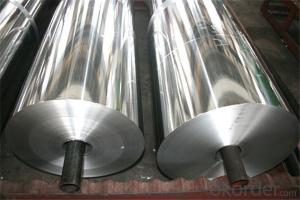AA 1100 Aluminum Coils for Air Conditioners
- Loading Port:
- China Main Port
- Payment Terms:
- TT OR LC
- Min Order Qty:
- -
- Supply Capability:
- -
OKorder Service Pledge
Quality Product, Order Online Tracking, Timely Delivery
OKorder Financial Service
Credit Rating, Credit Services, Credit Purchasing
You Might Also Like
supply Mill-finished / coated aluminum plate/sheet/ coil:
Alloy: AA1050,1060,1100,1200,2024,3003,3304,3005,3015,5052,5086,5754,5083,6061,7050,7475,8011, etc
Temper: O, H14/16/18/22/24/32/ H112/H321/T6,T851,T7451,T7351, etc
Thickness: 0.02mm—20mm
Width: 100mm—2000mm (Can be slitted)
Notice: PE coating / PVDF coating / Embossment can be done if required.
- Q: What are the potential applications of coil-anodized aluminum coils?
- Coil-anodized aluminum coils have a wide range of potential applications due to their durability, versatility, and aesthetic appeal. Some of the common applications include architectural cladding, roofing, signage, facade panels, interior decoration, automotive trim, and electronics casings. The anodized coating provides enhanced corrosion resistance, weatherability, and color stability, making it suitable for both indoor and outdoor use. Additionally, the ability to create various finishes and textures further expands the possibilities for using coil-anodized aluminum coils in different industries.
- Q: How are aluminum coils protected against moisture?
- Aluminum coils are protected against moisture through a process called coating. The coils are coated with a layer of protective material, such as a polymer or paint, that acts as a barrier between the aluminum and the surrounding environment. This coating prevents moisture from coming into direct contact with the aluminum surface, thereby reducing the risk of corrosion and damage. Additionally, some manufacturers may apply a special sealant on the edges of the coils to further enhance moisture resistance. These protective measures ensure that the aluminum coils remain durable and perform optimally even in humid or wet conditions.
- Q: Is it safe and effective to use an oven to heat an aluminum coil?
- <p>Yes, you can use an oven to heat an aluminum coil, but with caution. Aluminum has a high melting point and can withstand high temperatures, making it suitable for heating in an oven. However, it's crucial to ensure that the coil is clean and free of any non-stick coatings or residues that could produce toxic fumes when heated. Additionally, monitor the temperature and duration of heating to avoid overheating, which might cause the coil to warp or degrade. Always follow safety guidelines and manufacturer's instructions for your specific oven and aluminum coil.</p>
- Q: The export aluminum volume is CIF. If there is no insurance policy, how will the customs premium be collected?
- The customs will not charge your premium the premium you can write but if you are a refund if there will be some impact because of the tax rebate minus the freight and insurance premium so you consider the premium but you can write less Never mind if you need shipping or shipping insurance declaration business can contact me oh
- Q: What are the strength properties of aluminum coils?
- The strength properties of aluminum coils include high tensile strength, excellent formability, and good resistance to corrosion. Aluminum coils have a high strength-to-weight ratio, making them a preferred choice in various industries such as automotive, aerospace, and construction. They exhibit good resistance to fatigue and are capable of withstanding heavy loads without deformation or breakage. Additionally, aluminum coils offer excellent formability, allowing for easy shaping and bending without compromising their structural integrity. Moreover, aluminum's natural oxide layer provides a protective barrier against corrosion, making aluminum coils highly resistant to rust and other forms of degradation. Overall, the strength properties of aluminum coils make them a versatile and reliable material for a wide range of applications.
- Q: Are aluminum coils suitable for fire-resistant applications?
- No, aluminum coils are not suitable for fire-resistant applications as aluminum has a low melting point and can easily catch fire or melt in high-temperature environments.
- Q: Are aluminum coils suitable for high-temperature roofing applications?
- High-temperature roofing applications are not suitable for aluminum coils. Despite being durable and resistant to corrosion, aluminum has a lower melting point compared to commonly used roofing metals like steel or copper. With a melting point of approximately 660 degrees Celsius (1220 degrees Fahrenheit), aluminum cannot withstand the high temperatures experienced on hot roofs during summer or in areas with high ambient temperatures. Consequently, employing aluminum coils for high-temperature roofing applications may cause the material to warp, distort, or even melt due to the excessive heat, resulting in structural damage and potential leaks. It is recommended to opt for materials with higher melting points, such as steel or copper, for roofing projects where high temperatures are a concern.
- Q: This question asks for a comparison of the benefits and drawbacks associated with the use of aluminum coil in various applications.
- <p>The advantages of using aluminum coil include its lightweight nature, which reduces transportation costs and enhances energy efficiency. It also has excellent thermal conductivity, making it ideal for heat exchangers and cooking utensils. Aluminum coil is corrosion-resistant, which extends its lifespan and reduces maintenance. It is also recyclable, contributing to sustainability. Disadvantages include lower strength compared to steel, which may limit its use in heavy-duty applications. It also has a higher cost than some other metals, which can affect its competitiveness in certain markets. Additionally, aluminum is a good conductor of electricity, which can be a disadvantage in applications where electrical insulation is required.</p>
- Q: How are aluminum coils protected against corrosion during storage?
- Various methods and precautions are employed to protect aluminum coils against corrosion during storage. One commonly used approach involves applying a protective coating or film to the surface of the coils. This coating acts as a barrier, preventing direct contact between moisture and oxygen and the aluminum, thereby preventing corrosion. Another method involves using desiccants or moisture-absorbing materials. These materials are often placed within the packaging or storage containers alongside the aluminum coils to absorb any existing moisture. By reducing the moisture levels in the storage environment, the risk of corrosion is significantly reduced. Proper storage conditions are also crucial in safeguarding aluminum coils against corrosion. It is essential to store the coils in a dry, well-ventilated area, away from direct sunlight and other sources of moisture. Additionally, it is important to ensure that the coils are stored above ground and kept separate from any chemicals or substances that may cause corrosion. Regular inspections and maintenance are necessary to prevent corrosion during storage. This includes checking for any signs of damage or wear on the protective coating and promptly addressing any issues that arise. Furthermore, maintaining a clean storage environment, free from dust, dirt, and other contaminants, helps preserve the integrity of the protective coating and prevents corrosion. In summary, a comprehensive approach consisting of protective coatings, moisture-absorbing materials, proper storage conditions, and regular maintenance is essential for effectively protecting aluminum coils against corrosion during storage. These measures ensure that the coils remain in optimal condition and are readily available for use when needed.
- Q: What benefits can utilizing aluminum coil bring to the construction industry?
- <p>Aluminum coil offers several advantages in construction, including its lightweight nature which reduces structural load and facilitates easier handling and installation. It is highly resistant to corrosion, ensuring longevity and low maintenance costs. The material is also known for its excellent thermal conductivity, making it suitable for energy-efficient applications. Additionally, aluminum coil is recyclable, contributing to sustainability and reducing environmental impact. Its versatility allows for various applications, from roofing and siding to structural components, enhancing aesthetic appeal and functionality.</p>
Send your message to us
AA 1100 Aluminum Coils for Air Conditioners
- Loading Port:
- China Main Port
- Payment Terms:
- TT OR LC
- Min Order Qty:
- -
- Supply Capability:
- -
OKorder Service Pledge
Quality Product, Order Online Tracking, Timely Delivery
OKorder Financial Service
Credit Rating, Credit Services, Credit Purchasing
Similar products
Hot products
Hot Searches
Related keywords
